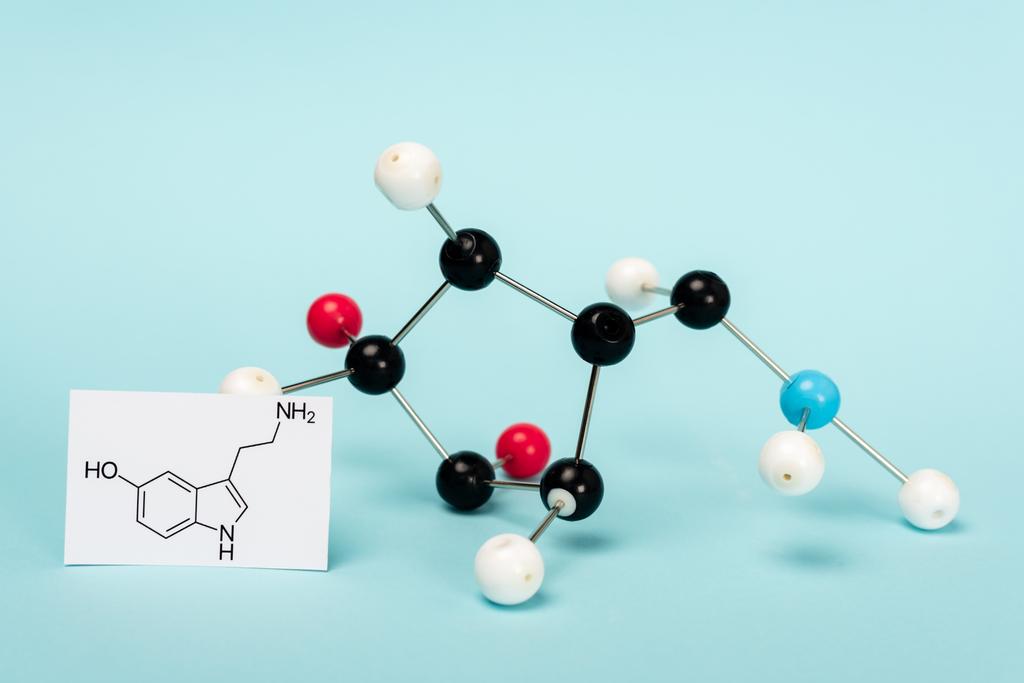Serotonin: Nootropic Explained
September 13, 2023

Hello, brain enthusiasts! Are you ready to dive deep into the world of serotonin, the feel-good neurotransmitter, and its role as a nootropic? Buckle up, because it's going to be a thrilling ride!
Before we start, let's get one thing straight: serotonin is not just a neurotransmitter. It's a rockstar of the brain, playing a lead role in mood, appetite, sleep, and even learning and memory. So, let's get to know this superstar better.

The Basics of Serotonin
Let's start with the basics. Serotonin, also known as 5-hydroxytryptamine (5-HT), is a neurotransmitter that is primarily found in the brain, blood platelets, and the digestive tract. It's like the Swiss Army knife of neurotransmitters – it does a lot!
Produced in the brainstem, serotonin travels through the brain, delivering messages between nerve cells. It's like the postman of your brain, but instead of letters, it delivers mood, appetite, and sleep regulation.
Production and Function
Serotonin is produced from the essential amino acid tryptophan. Think of tryptophan as the raw material and serotonin as the finished product. This process happens in the brainstem, in special neurons called serotonergic neurons.
Once produced, serotonin gets packed into vesicles, ready to be released into the synaptic cleft – the tiny gap between neurons. When a nerve impulse comes along, serotonin is released into this gap, where it can bind to receptors on the receiving neuron and transmit its message.
Reuptake and Degradation
After serotonin has delivered its message, it doesn't just hang around in the synaptic cleft. It's quickly taken back up into the releasing neuron in a process called reuptake. This is like the cleanup crew coming in after a concert, making sure everything is tidy for the next show.
Once back in the neuron, serotonin can be broken down by an enzyme called monoamine oxidase (MAO). This is like the recycling process, breaking down the used serotonin so its parts can be reused.
Serotonin as a Nootropic
Now that we've covered the basics, let's move on to the exciting part: serotonin as a nootropic. Nootropics, also known as 'smart drugs', are substances that can enhance cognitive function. And serotonin, our brain's rockstar, definitely fits the bill.
Serotonin plays a key role in cognitive functions like learning and memory. It's like the conductor of the brain's orchestra, coordinating different parts of the brain to work together in harmony.
Role in Learning and Memory
Serotonin is involved in various aspects of learning and memory. It helps regulate the strength of synaptic connections, which is crucial for learning and memory formation. Think of it as the gym trainer for your neurons, helping them get stronger and more efficient.
Research has shown that serotonin can enhance both short-term and long-term memory. It's like the brain's personal assistant, helping it remember important information and store it for later use.
Role in Mood and Behavior
Serotonin is often called the 'feel good' neurotransmitter because of its role in regulating mood. It's like the brain's personal cheerleader, promoting feelings of happiness and well-being.
Low levels of serotonin have been linked to mood disorders like depression and anxiety. That's why many antidepressants work by increasing serotonin levels in the brain. It's like giving the brain a serotonin boost to help it feel better.
Boosting Serotonin Levels
So, how can we boost our brain's serotonin levels? There are several ways, from diet and exercise to supplements and medications. Let's explore these in more detail.
Remember, while boosting serotonin can have positive effects, it's important to maintain a balance. Too much serotonin can lead to a potentially life-threatening condition called serotonin syndrome. It's all about finding the sweet spot!
Diet and Exercise
Diet can play a big role in serotonin production. Foods rich in tryptophan, like turkey, eggs, and cheese, can help boost serotonin levels. It's like fueling your brain with the right ingredients to make more serotonin.
Exercise can also boost serotonin levels. It's like a natural mood booster, helping to increase serotonin production and release in the brain. So, get moving and give your brain a serotonin boost!
Supplements and Medications
There are also supplements and medications that can help boost serotonin levels. Tryptophan supplements, for example, can provide the raw material needed for serotonin production. It's like giving your brain the building blocks it needs to make more serotonin.
Medications like selective serotonin reuptake inhibitors (SSRIs) work by blocking the reuptake of serotonin, increasing its levels in the brain. It's like putting a stop to the cleanup crew, allowing the serotonin concert to go on for longer.

Conclusion
So, there you have it, folks! Serotonin, the rockstar of the brain, playing a lead role as a nootropic. From regulating mood and appetite to enhancing learning and memory, serotonin truly is a superstar.
Remember, while boosting serotonin can have positive effects, it's important to maintain a balance. So, fuel your brain with the right foods, get moving, and give your brain the serotonin boost it deserves. Until next time, keep your brain rocking!

 Back to Blog
Back to Blog